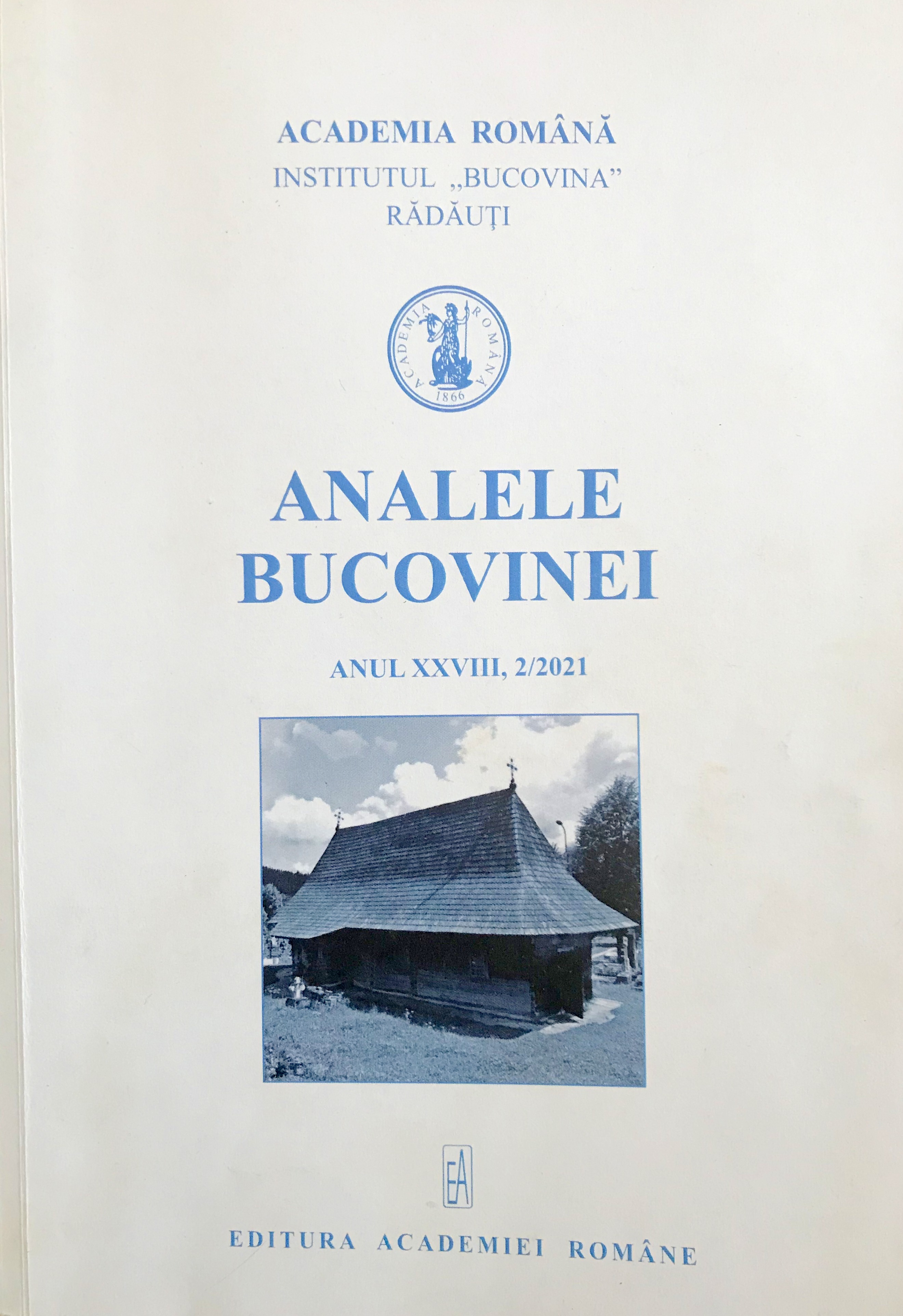GERMANII BUCOVINENI ÎN VIAȚA POLITICĂ DIN ROMÂNIA ÎN PRIMII ANI DE DUPĂ UNIRE
Bukovinian Germans in Political Life in Romania
in the First Years after the Union
Author(s): Mihai-Ștefan CeaușuSubject(s): Politics / Political Sciences, History, Local History / Microhistory, Political history, Social history, Pre-WW I & WW I (1900 -1919), Interwar Period (1920 - 1939)
Published by: Editura Academiei Române
Keywords: Bukovinian Germans; Provincial Electoral Act of 1910; Central Parliament of Vienna; public life; Duchy of Bukovina;
Summary/Abstract: In the Habsburg Bukovina, a province of the Austrian part of the dualist monarchy, until 1918, the population of German nationality – established in a number of villages, located mainly in the districts of Câmpulung, Gura Humorului, Rădăuți and Suceava, and in provincial cities, where it made up an important part of the urban bourgeoisie, as craftsmen, lawyers, pharmacists, teachers, officials etc. – had a somewhat privileged position, as one belonging to the ruling nation in the empire. This situation was fully reflected politically, with the Germans being an active presence in the public life of the Duchy of Bukovina, as some who always had a considerable number of representatives, especially elected from among the intellectual elite and officials, both in the Provincial Parliament and in the Central Parliament of Vienna. Thus, at the beginning of the 20th century, after the establishment in 1907 of the universal right of universal suffrage for the election of provincial representatives in the Vienna Chamber of Deputies, out of a number of 14 deputies, who belonged to Bukovina as a province, four mandates were assigned to the German-speaking population (Germans and German-speaking Jews). Although the approximately 70 000 Bukovinian Germans represented a small percentage in the province’s 800 000 inhabitants, they will gain an important position in the Provincial Parliament, through the Provincial Electoral Act of 1910, based on universal suffrage and the national cadaster, which will grant the German-speaking population a number of 15 deputies, out of a total of 61 elected deputies. This situation will change significantly after the First World War.
Journal: ANALELE BUCOVINEI
- Issue Year: 57/2021
- Issue No: 2
- Page Range: 575-582
- Page Count: 8
- Language: Romanian

